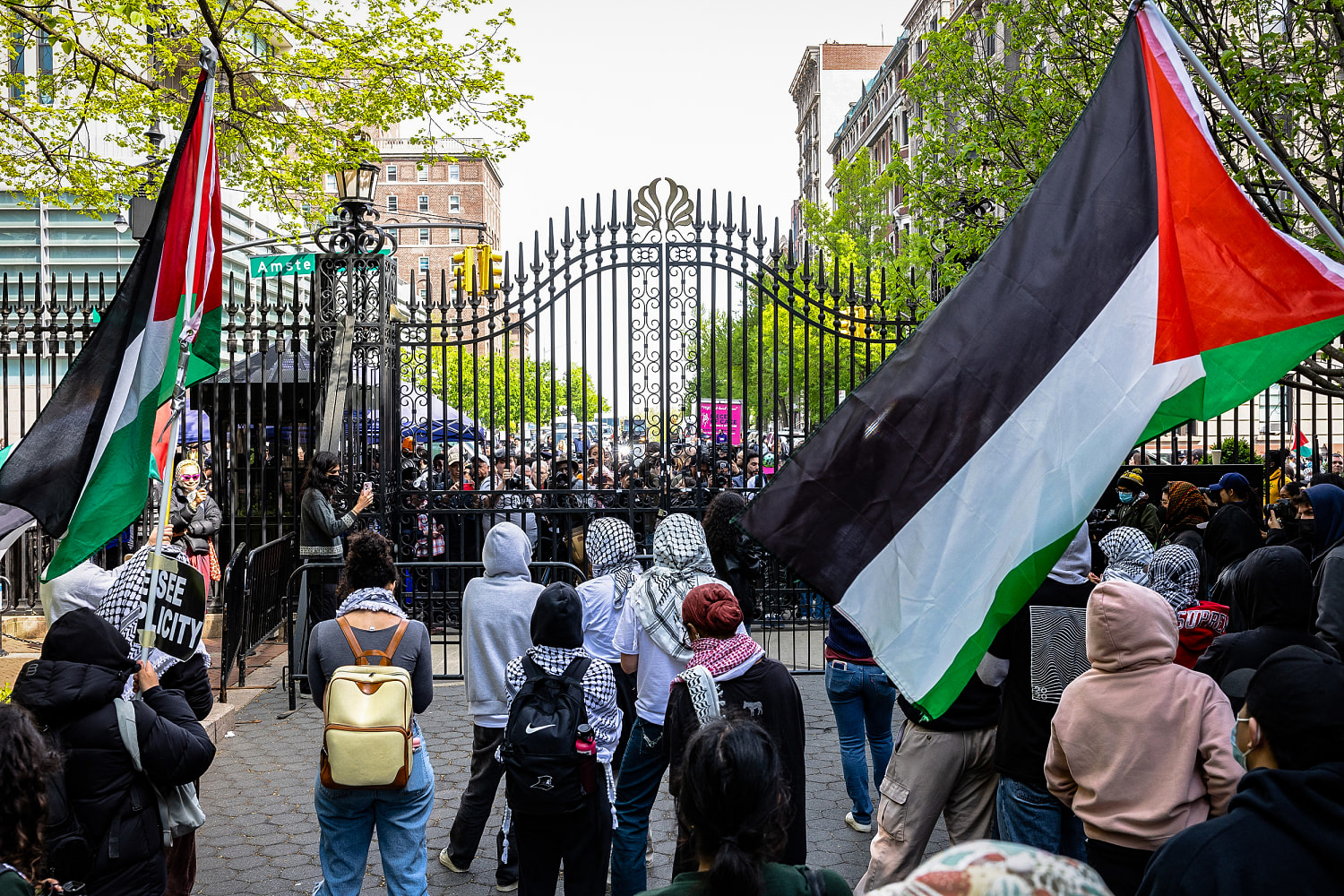
WASHINGTON — Senior Biden administration officials are increasingly concerned about where protests on college campuses over the war in the Gaza Strip will expand to next and view a potential cease-fire deal between Israel and Hamas as perhaps the only development that could quell some of the political blowback over President Joe Biden’s handling of the conflict.
The White House has for months been pursuing a cease-fire deal to secure the release of hostages held by Hamas, but the current round of talks comes at a critical moment — both in the war and in Biden’s re-election campaign.
“There has to be this deal,” National Security Council spokesperson John Kirby told reporters Tuesday.
Secretary of State Antony Blinken, who is shuttling across the Middle East trying to secure the deal, called on Hamas to accept it after he met Tuesday with the king of Jordan. Blinken is scheduled to meet with Israeli Prime Minister Benjamin Netanyahu on Wednesday.
U.S. officials see the current deal as the last and best one there is, in part because they say the Israelis have agreed to and compromised on key stipulations in this round of negotiations.
“The president is very concerned about how critical this moment is,” one U.S. official said. “There aren’t really cards left to play.”
Negotiations over a deal that would include a temporary cease-fire and the release of some hostages have often reached a critical phase in recent months, and then fell apart. But now, with Israel insisting it intends to carry out a military offensive in Gaza’s southernmost city of Rafah despite U.S. objections, a breakdown in cease-fire talks could leave little time for reviving them later, officials say. And a failure to secure a deal this time could give way to a more intensified war and would put hostages at further risk, they say.
The inflection point also comes as Biden is contending with growing protests on college campuses and the threat of demonstrations at his and other top administration officials’ events heading into the summer. Some administration officials privately note that one significant benefit to a diplomatic breakthrough could be its effect on the protests, some of which have turned violent on college campuses in recent days.
On Tuesday, the White House issued a sharp statement condemning students at Columbia University who took over a campus building by force Monday evening.
“President Biden has stood against repugnant, Antisemitic smears and violent rhetoric his entire life,” White House spokesperson Andrew Bates wrote. “Forcibly taking over buildings is not peaceful — it is wrong.”
The White House has said the president supports demonstrations that are “peaceful and lawful.”
Some U.S. officials have expressed optimism about reaching a cease-fire deal this time, though they’ve made similar comments during previous rounds of talks. The U.S. goal is for any temporary cease-fire to extend longer, and potentially pave a path to the end of the war, officials have said.
Blinken on Tuesday characterized a deal as “the best way, the most effective way to really deal with the suffering of people and also to create an environment in which we can hopefully move forward to something that’s really sustainable.”
Pro-Palestinian protesters have accused Biden of condoning genocide in Gaza — a charge the White House vehemently rejects. Protesters have repeatedly called for an immediate cease-fire. Biden has backed one that is contingent on Hamas releasing hostages.
The latest unrest at universities is the clearest representation yet of how the president’s foreign policy is affecting young Americans at a time when he needs their support for his re-election. White House officials have been seeking to strike a balance of respecting the protesters’ right to free speech, while calling out violent rhetoric and actions.
“A small percentage of students shouldn’t be able to disrupt the academic experience,” Kirby said on Tuesday.
The White House is leaving all decisions about how and whether to clear campuses of encampments by pro-Palestinian protesters to the schools.
And while the academic year it set to end in a matter of weeks, it’s unclear how commencement season could unfold for many schools dealing with protests that have led to more than 1,200 arrests so far, according to an NBC News tally.
Cease-fire talks had been at an impasse for weeks, but U.S. officials said they were encouraged by Hamas’ recent release of two videos showing proof of life of three hostages, suggesting that could indicate the terrorist group’s interest in cutting a deal.
Netanyahu pledged on Tuesday to proceed with a large-scale invasion of Rafah, where more than 1 million Palestinians are sheltering, whether a hostage deal comes together or not. The U.S. official conceded that Israel could still move forward even if there is an agreement, but officials say they believe Netanyahu is playing to his far-right coalition with his comments.
Blinken on Tuesday urged Hamas to take the deal, saying “the Israelis have put a strong proposal on the table.”
“The time to act is now,” he said.
